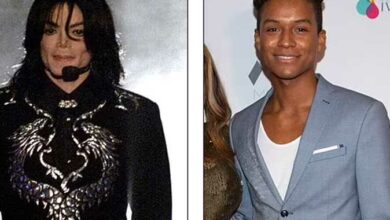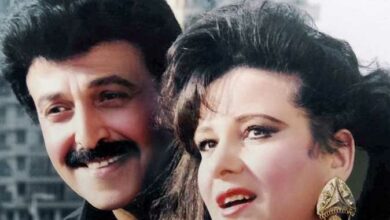Two years after its launch, MTV Arabia appears to be a mirror of our contemporary Arab character, a reflection of the hybridism of tradition and globalization that we are all living in the twenty-first century.
In 2007 when MTV announced it was partnering with the Dubai–based Arab Media Group to launch MTV Arabia a lot of people were skeptical. How would MTV’s brash American style translate to an Arab audience?
Viewing some of the popular ads and filler segments on MTV Arabia begins to answer this question.
One segment inspired by "Pimp My Ride," a famous show on the original MTV, has been changed to "Pimp My Thobe." (A thobe is the white garment worn by men in Saudi Arabia and Gulf countries.) The star of the segment is a Bedouin midget wearing a white thobe and a Saudi headdress.
After being exposed to western music, the midget sheds his traditional attire in favor of the latest bling and a brand new boom-box. By the end of his conversion, he’s doing the moonwalk to fusion Arabic-techno.
Another ad shows four Lebanese youth loitering on a street corner. They crack sunflower seeds and spit them out to the beat of the music. An attractive girl walks past and one of the guys yells out “Hey hot stuff, want to crack some seeds with us?”
The ad that best reflects the cultural mix to which MTV Arabia aspires is part of an anti-cursing campaign for Ramadan. Here we see different youth in situations where they feel compelled to unleash a tirade of curse words on an irritating person. Instead, their mouths release a deluge of animated hearts, rainbows, and care bears. They find themselves making flowery justifications and pleasant remarks to the person they intended to insult.
The sense of humor in both these ads is genuinely Arab, drawing upon cultural norms, stereotypes, and gender interactions that we all take for granted. But they are simultaneously very much a product of MTV’s signature style.
When it comes to content, the channel faces still competition from the more than 50 Arab music channels. MTV Arabia’s edge, however, is the fact that they air primarily western content. The vast majority of the programming comes from the American MTV. Instead of gossiping about Haifa or Nancy Ajram, MTV Arabia prefers to comment on Amy Winehouse’s acquittal or Chris Brown’s apology to Rihanna.
Of course there is a catch. Any content that is deemed inappropriate by local managing editors in Dubai is censored. This is an important matter when you consider the fact that Saudi Arabia is one of the channel’s biggest markets.
“We are a direct franchise of MTV international," says Natalie Havarisian of MTV Arabia. "But obviously programming can’t be identical. We have to be sensitive to the special needs of our audience in the region.”
The musical content on MTV Arabia is, just like its western counterpart, quite commercial. Bland, played-out pop stars seem to sing the same formulaic songs over and over.
But all is not lost. MTV Arabia begins to shine when it comes to local programming.
The station’s homegrown shows, which are hosted almost exclusively by bi-lingual Arabs and account for about 40 per cent of the content, are actually somewhat interesting.
The most impressive in this category are the programs showcasing local talent. Here we catch a glimpse of MTV 1980s edge, daring to introduce us to new styles and genres. Far from offering cheesy ballads, shows like Hip Hop Na (Our Hip Hop) feature surprising acts like Dubai-based Desert Heat and Lebanon’s female rap artist Malika.
Most of these performers would have gotten very little pan-Arab exposure without MTV Arabia. But are these performers, and MTV Arabia for that matter, really popular among ordinary Arab youth?
Mohamed Shoman, head of the media and communications department at Cairo’s Ain Shams University doesn’t think so.
“The first thing you need to take into account is that there are no independent rating surveys in the Middle East," Shoman says. "All such surveys in the Arab world are conducted by the broadcasters themselves and usually to prove a point. I personally find it very difficult to believe that MTV Arabia could compete with enormously successful Arabic Music channels.”




